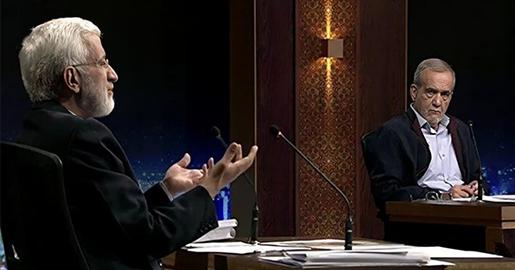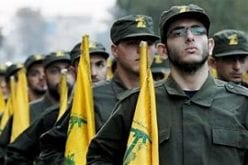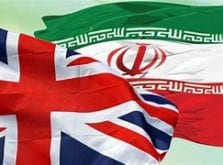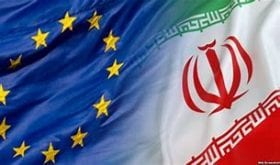Iranwire – The final debate of Iran’s presidential election quickly devolved into a heated exchange between candidates Masoud Pezeshkian and Saeed Jalili.

While originally intended to focus on economic issues, the debate on Tuesday night swiftly expanded to encompass foreign policy, sanctions, and diplomatic incidents.
“We are never going to lift all the sanctions or not. It is a dialogue and negotiation, and it depends on what they give and what we give,” Pezeshkian said.
He emphasized the importance of Iran’s engagement with the world, asserting that “in history, no sovereignty has been able to flourish inside a cage.”
Jalili, in response, sharply criticized Pezeshkian’s metaphor of Iran being “in a cage.”
He accused Pezeshkian and his advisers of planning to offer new concessions to Western powers to lift sanctions, echoing similar claims from the first debate.
The exchange grew more heated when Pezeshkian challenged, “With the sanctions, will you fly?”
Jalili countered by pointing to previous administrations led by Akbar Hashemi Rafsanjani, Mohammad Khatami, and Hassan Rouhani, suggesting that Pezeshkian’s ideological allies had been in power for 40 years without resolving the country’s economic challenges.
Jalili praised the current administration of Ebrahim Raisi, particularly highlighting his foreign trips and contrasting them with Rouhani’s lack of visits to Africa.
He claimed that Raisi’s government had succeeded in attracting foreign investment and boosting exports, though he notably omitted any mention of Mahmoud Ahmadinejad’s administration.
When pressed on his own strategy for lifting sanctions, Jalili spoke in broad terms about “neutralizing the sanctions” and making “the enemy regret the sanctions.”
He asserted that Iran should actively claim its rights about the 2015 nuclear deal and similar agreements.
The debate underscored the stark differences between the candidates’ approaches to Iran’s economic challenges and its relationship with the international community.
In a segment of the debate, Jalili criticized Pezeshkian’s supporters for comparing his supporters to the “Taliban.”
On the other hand, Pezeshkian criticized Saeed Jalili, stating: “Someone who slanders people in public as easily as drinking water, what might he do to the people?”
Pezeshkian accused the people around Saeed Jalili and his “shadow government” of being involved in the attacks on the Saudi and British embassies.
Jalili challenged him to name a single person involved.
Jalili blamed Hassan Rouhani’s government for failing to secure the embassies, to which Pezeshkian responded that those who attacked the embassies were allowed to do so.
Another topic of the debate was the “price of energy.”
When asked about the price of petrol, Pezeshkian clarified that the 20,000 tomans price he mentioned earlier was discussed in a student meeting, not from an official government position.
Pezeshkian also noted that if energy subsidies are to be just, they should be provided to everyone, not just the wealthy who own more cars.
He said that any increase in petrol prices should be based on comprehensive expert discussions and should not harm vulnerable groups.
Pezeshkian emphasized prioritizing disadvantaged people in subsidy distribution.
In response, Saeed Jalili criticized Pezeshkian for not having a specific plan, pointing out that as a presidential candidate, he should have studied the issue in advance.
Jalili recalled Hassan Rouhani’s statement about being informed of the petrol price increase in November 2019 “Friday morning,” criticizing the then-president’s lack of control.
Jalili continued to criticize Rouhani’s government and the injustice in subsidy distribution, which he deemed unfair.
Pezeshkian interrupted, urging Jalili to focus on his own policies rather than Rouhani’s government.
Pezeshkian distanced himself from Hassan Rouhani’s administration, criticizing Jalili for trying to associate him with “the third administration of Rouhani.”
In response to a question about the stock exchange market, Pezeshkian argued that economic plans should not be dictated by one person and that government should not intervene in setting the amount and price of goods.
He promised to restore stability to the stock market and ensure the government’s budget deficit would not be financed through the stock market.
The final debate of the presidential election concluded without any of the candidates addressing critical issues in education, such as the lack of education per capita, children deprived of schooling, and the shortage of teachers.
Topics concerning children, including child marriage and child labor, were also neglected by all candidates.
Additionally, environmental issues like the water crisis, air pollution, and land subsidence were not mentioned.
Health-related concerns, such as the shortage of medicine, were similarly overlooked by the candidates during these debates.
Iran will hold a run-off presidential election on July 5 after neither of the top candidates secured more than 50 percent of votes in Friday’s polls.
According to the final results released by the ministry, with more than 24 million people voting, moderate lawmaker Masoud Pezeshkian and hardliner Saeed Jalili qualified for the run-off election.
 Shabtabnews In this dark night, I have lost my way – Arise from a corner, oh you the star of guidance.
Shabtabnews In this dark night, I have lost my way – Arise from a corner, oh you the star of guidance.



